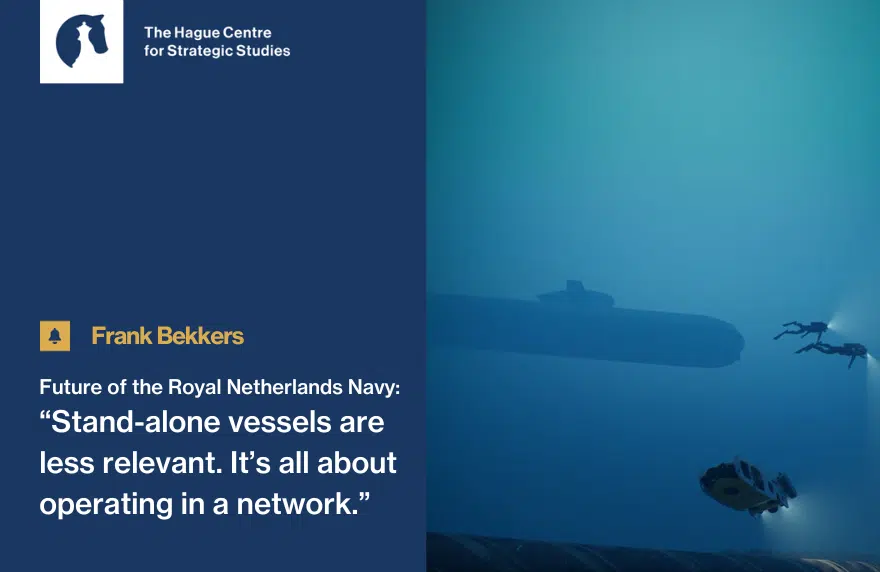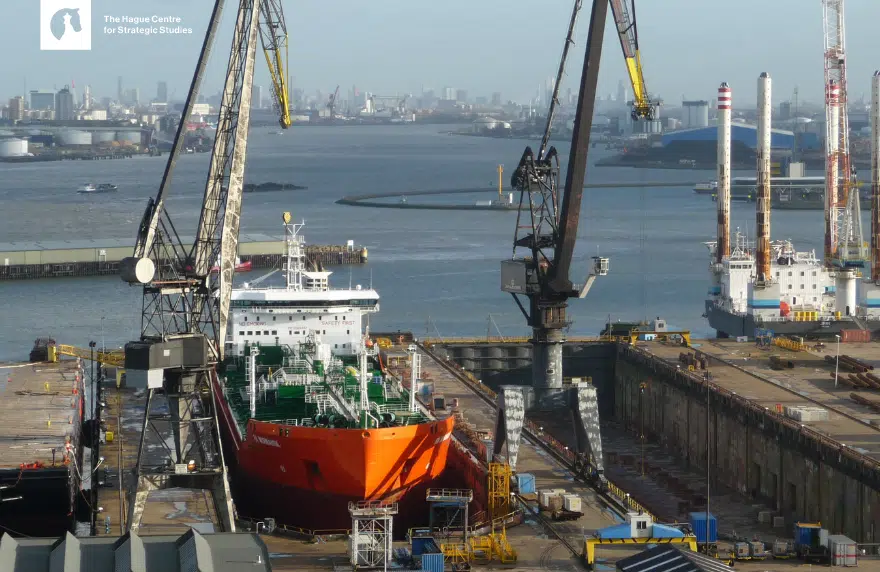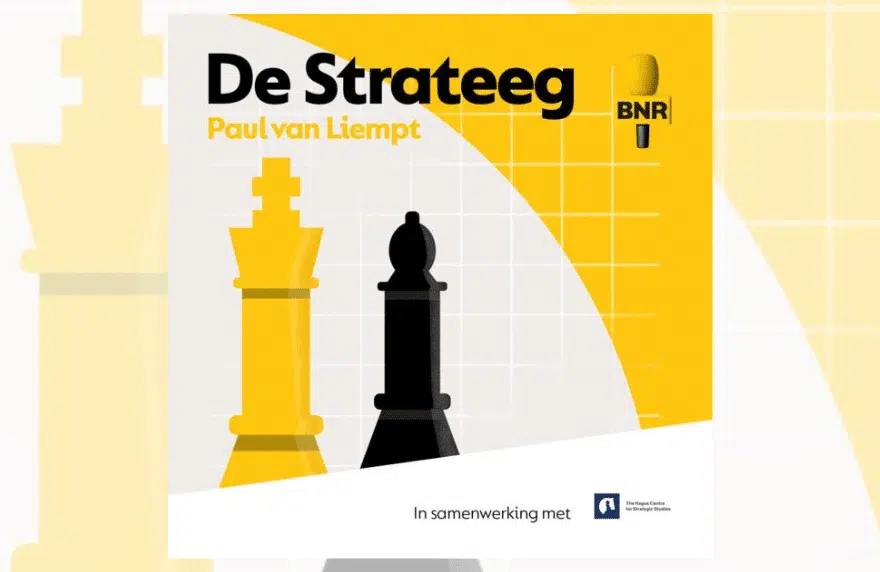The only thing that doesn’t change is change itself. Even so, the transformation of the global landscape demonstrates that we are in an era of changes that are fundamental. Frank Bekkers, the programme director of The Hague Centre for Strategic Studies (HCSS) discusses the implications for the Netherlands, and specifically the Royal Netherlands Navy, in the wider context of safeguarding national sovereignty through European autonomy.
Source: Damen Magazine #10
“The dominance of the West on the world stage is declining. For years, we have been able to rely on multilateral institutions such as the International Monetary Fund, the United Nations and the World Bank, certainly when it comes to prosperity and well-being. It is clear to see how that paradigm is under pressure. The East is on the rise, but so is the Global South. China is the leading voice calling for more influence in these institutions, which are thought to be too subservient to the interests of the West. And if that influence isn’t granted, countries set up their own institutions, as in the case of China recently with the announcement of the expansion of the BRICS countries as a counterpart to the Western-oriented G7.
The intensity of the power struggle between the United States and China is all too clear. Processes of this kind often lead to war, but we can’t really afford to go down that road. We are in a climate crisis that requires us to work together globally to address the problems. The same goes for migration, and the distribution of resources and prosperity. We really need a new world order for our overarching problems.”
Chips and 6G
“At the same time, you can see the West thinking about ‘de-risking’. How can we disconnect, or at least become more independent of production in, for example, China, and energy from Russia. That means not only commodities but also technology such as chips, 5G/6G and AI. A form of regionalisation is emerging, even though globalization will not come to a halt. In an increasingly unsettled world, ensuring that the sea lines of communication remain open and secure is even more important. Which explains why Dutch Defence Minister Ollongren has announced that the Royal Netherlands Navy will from now on undertake a mission to the East every two years.
“We need to get our own defence up to scratch: to stand on our own two feet.”
Frank Bekkers
For Europe, this ‘de-risking’ applies not only to Asia but also to the United States, and specifically to our defence arrangements. We can’t continue to rely on the US to protect Europe indefinitely. We need to get our own defence up to scratch, to stand on our own two feet. This applies to all aspects of modern warfare, including our own doctrine, networks and communication systems based on our own satellites and the like. We can only do that if Europe works together. The costs are too high for individual countries – even France and Germany. You can only continue to safeguard national sovereignty in a context of European autonomy. And if that European autonomy is not based on its own defence, a powerful European pillar as part of NATO, is meaningless.”
Naval conglomerates
“I don’t think that means one big European army. We will have national units acting in a coordinated way as part of a European network, following the example of NATO. Dutch Army brigades operating as part of German divisions are a good example. The European defence industry will have to keep up. Eventually, two or three major European naval conglomerates will be left over. As the Netherlands, you want to participate in that process from a position of strength. That means continuing to look after your OEMs and capabilities in that area.
Moving on from that, collaboration on the development and construction of platforms for defence will be indispensable. As in naval construction. Stand-alone vessels are less relevant. It’s all about operating in a network. Interoperability is crucial in that respect. Moreover, there has to be a focus on economies of scale and innovative capacity. In terms of cost, it’s simply much more efficient to build larger series. And one way of building up innovative capacity is to incorporate civilian technological developments in military applications, and vice-versa. It should be pointed out that Damen’s success is also based in part on that principle.”
Brainport Eindhoven
“More funding is becoming available for defence in the Netherlands. That is a good development, and the Royal Netherlands Navy will also benefit. The workforce will not increase but there will be more investment in technology. An important development in this regard is digitalisation. And that doesn’t mean replacing systems during a Mid-Life Update. Virtually continuous updates to software and systems will also be needed: ‘technology insertion’. The functionality of military systems is also increasingly determined by software. And software can be updated relatively easily and remotely if necessary. In this regard, I expect new parties on board vessels to become increasingly important. The Silicon Valley-like companies or, in Dutch terms, Brainport Eindhoven. Accordingly, more continuous support will be required from builders like Damen, eventually resulting in a sort of ‘ship-as-a-service’ partnership.
“Stand-alone vessels are less relevant. It’s all about operating in a network.”
Frank Bekkers
As far as the vessels of the Royal Netherlands Navy are concerned, autonomous and underwater are the keywords. Autonomy is already emerging in mine countermeasures vessels. A mother ship equipped with multiple, small, mostly unmanned, drones. This is the future for all platforms. The balance between surface and underwater is shifting in the process. Thanks to the presence of sensors everywhere, including in space, surface vessels can always be detected and targeted with precision weapons at long range. That means that operations in conflict zones are becoming very high risk. So, there will be more underwater operations. The frigate of the future may well be a civilian mothership or a submarine with large numbers of satellite drones.”
National Naval Construction Brainport
Richard Keulen, Director of Corporate Strategy and Innovation at Damen Naval, shares his thinking about Frank Bekkers’ analysis. “The insights presented by Frank Bekkers are confirmation for Damen Naval that we are following the right course. In part because of our strategic relationship with the defence sector, which is allowing us to anticipate some of the trends mentioned.
Our involvement in the Anti-Submarine Warfare Frigates (ASWF) programme has brought us back to building national, complex naval vessels. After all, it had been a long time since the Dutch Ministry of Defence had placed a frigate replacement order: the defence budget had been cut for years. Fortunately, we can now get to work with Defence again to build these modern frigates.”
Genuine combat vessel
“The new frigate is a genuine combat vessel. With a wide range of Dutch companies, we are in the lead for the construction of this complex naval vessel, working together on the details of the developments described by HCSS. In addition, our early involvement in innovation initiatives, such as Dutch Naval Design at the national level, and the European Defence Fund at the European level, has given us a clear direction. First of all to identify focus areas for Research, Development & Innovation (RD&I). But also for strategic planning relating to upcoming projects, particularly given the extensive plans to replace ships in almost the entire Royal Netherlands Navy over the next fifteen years.
In these times of escalating tensions and increasing security concerns, including at sea, it is reassuring for us to be involved in the discussion of these developments from our position as a national naval OEM. We believe that this discussion is also essential for the selection of the submarines of the future. We fully respect the decision-making process and considerations of our government, but we are also ready, with Saab and numerous Dutch companies, to shape the National Naval Construction Brainport.”
Self-sufficient development and integration capability
“It is logical for us, as the Dutch naval construction cluster, to play a leading role here. After all, we are still the only defence sector in which the Netherlands has self-sufficient development and integration capability. That means we continue to be relevant at the European level as well.”







